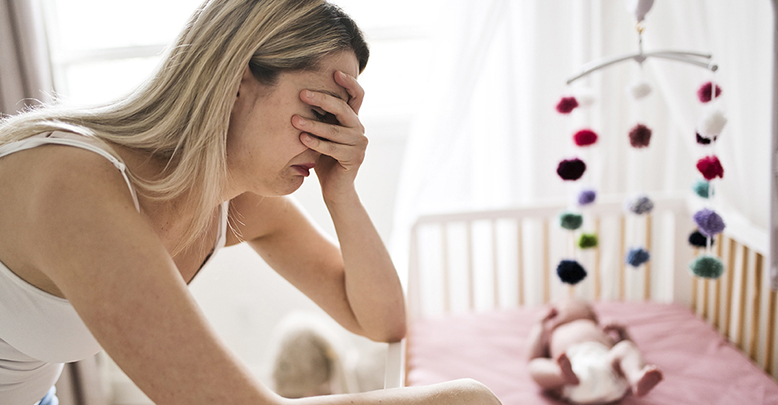
Unlike adults, babies are unable to talk and express their needs through words. Because of this, they typically use crying to show when they are unhappy. If your baby keeps crying whenever you lay them down to sleep, they are trying to tell you something.
While having a baby is an exciting development in your life, it can also be an exhausting one. As a new parent, you have so many things to take care of. Having to deal with sleep deprivation is the last thing you need. Unfortunately, many babies keep their parents awake each night. Over time, this can take a toll on your physical, emotional and mental health.
Why Babies Cry After You Put Them to Bed
Instead of dealing with sleepless nights, you can figure out the root cause of your baby's unhappiness. One thing you can do is look at Maslow's hierarchy of needs. According to a famous psychologist called Abraham Maslow, human beings are born with physical, security, self-actualization, social and ego needs.
Maslow designed these needs to look like a pyramid. The more primitive needs such as our physical need for air, water and food are at the bottom of the pyramid. Before we can be happy, the bottom four levels of the pyramid must be met. Each low-level need must be achieved before we can move on to higher needs.
Babies are primarily focused on the lower segments of the pyramid. Physically, they need food, sleep and clean diapers. In terms of security, babies want to feel safe and secure. In terms of social needs, a baby wants to feel loved, cared for and accepted.
When your baby is crying at bedtime, it is often because one of these needs is unmet. The baby may be hungry, or they may be crying because they are extremely tired. In many cases, babies cry when you leave them because of separation anxiety. This anxiety stems from their social need to be loved. By using Maslow's hierarchy of needs, you can quickly understand the possible reasons why your baby is crying when you put him down to sleep at night.
Hunger
Hunger is a physical trait, so it makes up the bottom of Maslow's hierarchy of needs. In general, hunger is one of the main reasons why infants cry. Because babies are unable to communicate their needs through talking, they cry whenever they are hungry and need to be fed.
The easiest way to solve this issue is to feed your baby before you put them in bed. Eating can also make your baby more likely to fall asleep. Like adults, babies feel drowsy after they have had a big meal. Because of this, it is always a good idea to have naps happen after mealtimes.
Separation Anxiety
Babies can develop separation anxiety at any age. Separation anxiety can start in babies as young as four or five months old. The most common time for separation anxiety to begin is around 10 months old. For most babies, separation anxiety ends when they are about 18 months old.
If your baby is suffering from separation anxiety, you will have to be patient for a while. You can gradually let your baby become more independent. If your baby crawls into another room without you, you can let them explore on their own as long as it is safe to do so. By doing this, you can help your baby become more comfortable with being alone. Babies are more likely to handle separation well when they feel content. In general, babies feel the most content following a nap or meal.
Routines
TBabies and children love routines. A routine lets the baby know what to expect, and it provides them with a sense of security. Like adults, babies want to feel loved and secure.
Sometimes, the reason why your baby is crying at bedtime is that they do not have a routine yet. They do not know what to expect at each time of day, so they feel anxiety and fear. Even when a baby is only a few weeks old, it quickly latches onto new routines. If you put your baby down to sleep at the same time each day, it will help them anticipate naptime and feel secure.
Teething is an uncomfortable phase in your baby’s life. Dealing with the pain before bed can help tremendously, but these tips can help should your child wake up throughout the night due to the pain. The most important thing to remember is that teething doesn’t last forever; it’s only off and on for a couple of years. If you stick to your baby’s sleeping schedule as best as you can, once the teething stage is over, they should transition back to the same routine fairly easily.
How to Keep Your Baby From Crying at Bedtime
When your baby keeps crying when you put him down to sleep, it can be an exhausting experience. Fortunately, there are a number of things you can do about it. With the following tips, you can help your baby fall asleep with as little crying as possible.
Make a Routine
One of the most important things you can do is give your baby a routine. If your baby knows what to expect, it helps to reassure them. They naturally want to cuddle with you as long as possible, so you need to proactively make a routine if you want them to settle down alone.
The right routine depends on your needs. Babies sleep better after they eat, so you may want to get your baby in the habit of going to bed after mealtime. You can also do things like reading a book or singing a nursery song before bed so that your child feels safe and knows what to expect.
Give Them a Bath
Many families incorporate bath time into their nightly routine. Bath time is great for soothing a fussy infant. It may even mimic the soothing months that the infant spent inside of his mother's womb. Other than cleaning your baby, you can also use bath time to help him calm down before he goes to sleep.
Read a Story
Babies love hearing their parents' voices. Reading a book is more than just a great way to calm a fussy baby. It can also help your child learn how to talk. In addition, studies show that a baby will know more words by the time he is two if his parents read and talk to him.
Massage
Massaging your baby can actually help him fall asleep. Physical touch helps the baby relax just like it helps adults unwind. In addition, massages have been shown to improve bonding between the baby and the caregiver. It releases melatonin, which helps the baby's mind get ready for sleep.
Nurse Your Baby
Nursing releases hormones that help your baby feel content and happy. In addition, it is easier for babies to fall asleep when they are nursing. While nursing can help your child fall asleep, you do not want to overdo it. If you nurse for too long, they may become dependent on nursing in order to fall asleep. Instead, you should nurse your baby just until they are drowsy. Then, you can gently transfer the baby to his crib.
Bedtime Mistakes to Avoid
Creating a bedtime routine, reading a book and nursing your child can make bedtime easier. There are also things you should avoid if you want your baby to fall asleep at night. The following list of mistakes should be avoided unless you want to deal with a crying child all night.
- Listening to the baby monitor too much: Sometimes, the best thing you can do is ignore small whimpers and sleep-related noises. Instead, you can turn down the baby monitor so that you only hear your baby crying when he actually needs help.
- Leaving a bottle behind: Before your baby falls asleep, you should remove his bottle. Otherwise, the formula can pool in his mouth and cause cavities.
- Turning the lights off: To help your baby's circadian rhythms, you should keep his room bright during the daytime and dark at night.
Common Questions
Should Babies Cry Themselves to Sleep?
When you hear your baby crying, it is hard to just let him remain alone in his crib. Most childcare experts do not think that babies are harmed by crying themselves to sleep. Each parent is different, so you should do whatever approach feels the best for you and your family. You know what your baby needs, so you should use the technique that feels comfortable for you.
When Can Babies Sleep on Their Own?
Each baby is unique. Because of this, your child may start sleeping alone earlier or later than another child. While some babies sleep independently at four months old, other babies do not sleep alone until they are over a year old.






 CLAIM YOUR DAYCARE IT'S FREE!
CLAIM YOUR DAYCARE IT'S FREE!
START YOUR SEARCH NOW!